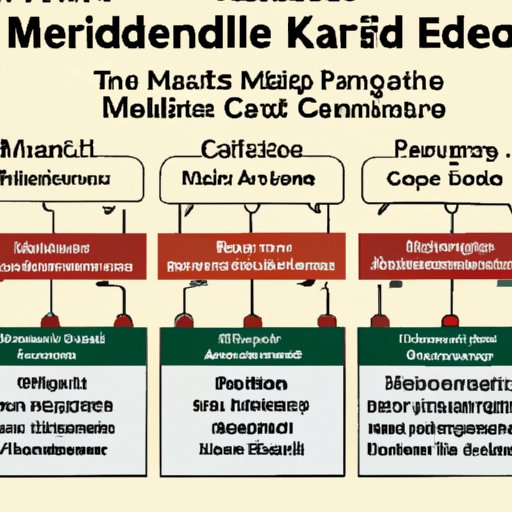Introduction
Medicare is a federal health insurance program that provides coverage to millions of Americans. It is designed to help seniors and people with certain disabilities pay for medical care. But what are the eligibility requirements for Medicare? How do you know when you qualify? This article will explore the various qualifications for Medicare and discuss the enrollment timeline.

Exploring Eligibility Requirements for Medicare
In order to determine when you are eligible for Medicare, it is important to understand the various qualifications. There are four main criteria that you must meet in order to be eligible for Medicare: age-based qualifications, disability status, end-stage renal disease, and working after retirement.
How to Determine When You Are Eligible for Medicare
The first step in determining your eligibility for Medicare is to understand the different qualifications. Let’s take a closer look at each one.
Age-Based Qualifications
If you are 65 years or older, you are automatically eligible for Medicare. Additionally, if you are under 65 and have certain disabilities or illnesses, such as end-stage renal disease or Lou Gehrig’s disease, you may also qualify.
Disability Status
If you are under 65 and have been receiving Social Security Disability Insurance (SSDI) for 24 months or more, you are eligible for Medicare. Additionally, if you have certain conditions, such as amyotrophic lateral sclerosis (ALS), you may qualify for Medicare earlier than 24 months.
End-Stage Renal Disease
If you have end-stage renal disease (ESRD), you are eligible for Medicare regardless of your age. ESRD is defined as a permanent kidney failure that requires dialysis or a kidney transplant.
Working After Retirement
If you are 65 years or older and are still working, you may be eligible for Medicare. If you or your spouse has employer health insurance through the workplace, you may be able to delay enrollment in Medicare without any penalties. However, if you decide to enroll, you may be eligible for a special enrollment period.
Understanding the Medicare Enrollment Timeline
Once you have determined that you are eligible for Medicare, it is important to understand when you can enroll. Here are some key points to keep in mind.
When Can You Enroll in Medicare?
Your initial enrollment period begins three months before the month you turn 65 and ends three months after the month you turn 65. During this seven-month period, you can sign up for Medicare Part A (hospital insurance) and Part B (medical insurance). If you miss this window, you can sign up during the annual general enrollment period, which runs from January 1st to March 31st each year.
Late Enrollment Penalties
If you choose to delay enrollment in Medicare beyond your initial enrollment period, you may be subject to late enrollment penalties. The penalty amount is based on the number of months you delayed enrollment. For example, if you delayed enrollment for two years, you would be subject to a 10 percent penalty on your Part B premium for the rest of your life.
Conclusion
Understanding when you qualify for Medicare is an important part of planning for retirement. To be eligible for Medicare, you must meet certain qualifications, including age-based qualifications, disability status, end-stage renal disease, and working after retirement. Additionally, it is important to understand the Medicare enrollment timeline so you can avoid late enrollment penalties. For more information about Medicare eligibility, visit the official Medicare website.
Summary of Eligibility Requirements
To be eligible for Medicare, you must meet certain qualifications, including age-based qualifications, disability status, end-stage renal disease, and working after retirement.
Resources for Further Information
For more information about Medicare eligibility, visit the official Medicare website: https://www.medicare.gov/.
(Note: Is this article not meeting your expectations? Do you have knowledge or insights to share? Unlock new opportunities and expand your reach by joining our authors team. Click Registration to join us and share your expertise with our readers.)
